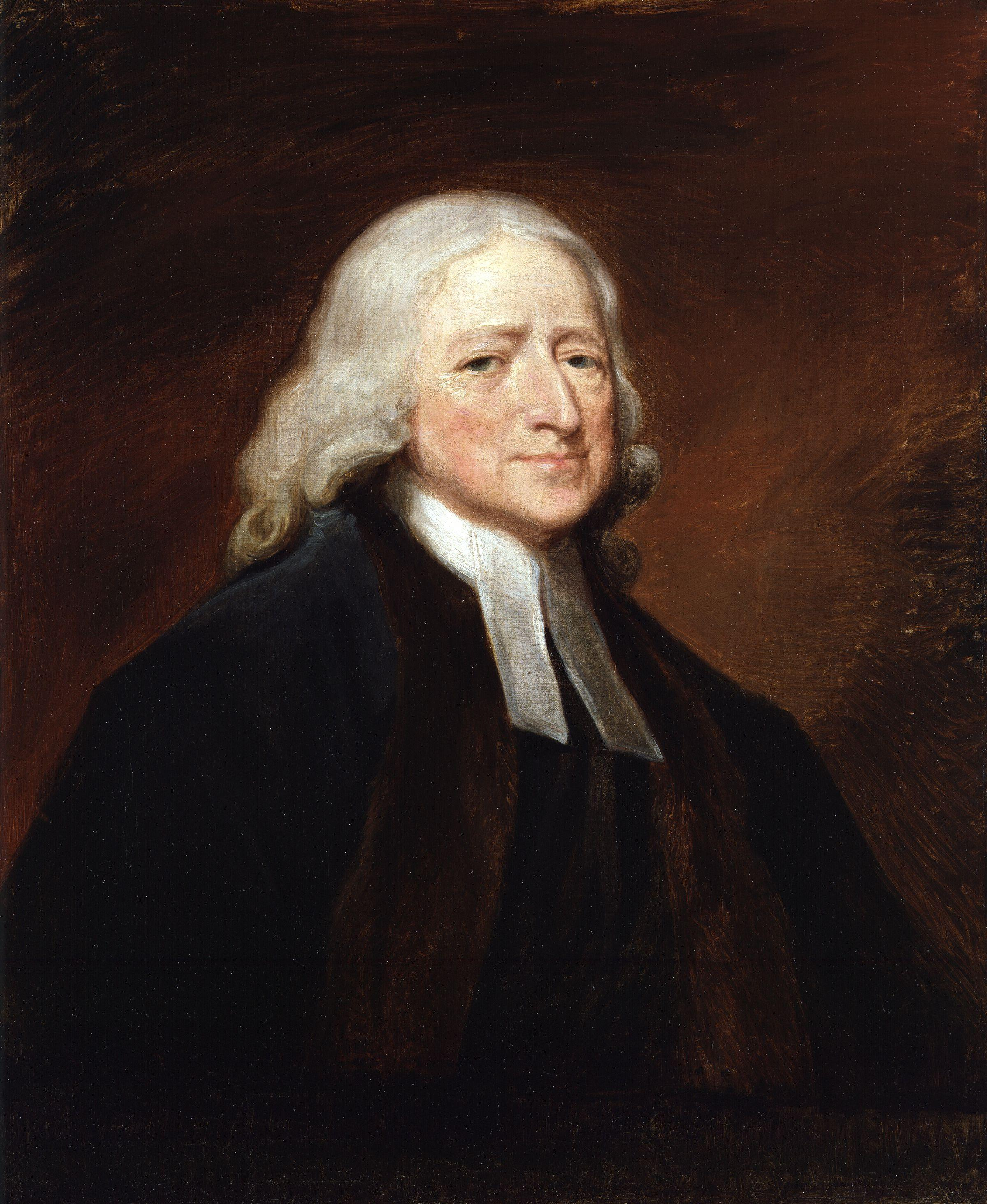But it is difficult to say either what kind or what degree of union may be between them. It is not improbable their fellowship with us is far more sensible than ours with them. Suppose any of them are present, they are hid from our eyes, but we are not hid from their sight. They no doubt clearly discern all our words and actions, if not all our thoughts too; for it is hard to think these walls of flesh and blood can intercept the view of an angelic being. But we have in general only a faint and indistinct perception of their presence, unless in some peculiar instances, where it may answer some gracious ends of Divine Providence. Then it may please God to permit that they should be perceptible, either by some of our outward senses or by an internal sense for which human language has not any name. But I suppose this is not a common blessing. I have known but few instances of it. To keep up constant and close communion with God is the most likely means to obtain this also.
Letter to Mary Bishop, an important Methodist "Class Meeting" leader, https://books.google.com/books?id=E-iMVOU6PhYC&pg=PA33&lpg=PA33&dq=%22one+of+his+leading+women+class+leaders,%22&source=bl&ots=TjalEPj1rz&sig=MGwiThaIzWLfs6AWUzta-aZNBUk&hl=en&sa=X&ved=0ahUKEwiX3oyws6_TAhVHRyYKHbRvCv8Q6AEIJDAA#v=onepage&q=%22one%20of%20his%20leading%20women%20class%20leaders%2C%22&f=false (12 June 1773), in The works of the Rev. John Wesley, Seven Volumes, (1853), Carlton & Phillips, New York, vol. VII, p. 164. https://books.google.com/books?id=P4QsAQAAMAAJ&pg=PA164&dq=It+has+in+all+ages+been+allowed+that+the+communion+of+saints+extends+to+those+in+paradise&hl=en&sa=X&ved=0ahUKEwjejuPcrq_TAhWG0iYKHefIDYwQ6AEIJDAA#v=onepage&q=It%20has%20in%20all%20ages%20been%20allowed%20that%20the%20communion%20of%20saints%20extends%20to%20those%20in%20paradise&f=false See also, Pro Ecclesia: A Journal of Catholic and Evangelical Theology http://www.e-ccet.org/pro-ecclesia/ (Winter 2010), Joseph L. Mangina http://religion.utoronto.ca/people/cross-appointed-faculty/mangina-joseph-l/, Editor, Vol. 19, no. 1, p. 90. https://books.google.com/books?id=YmgAAwAAQBAJ&pg=PA90&dq=It+has+in+all+ages+been+allowed+that+the+communion+of+saints+extends+to+those+in+paradise&hl=en&sa=X&ved=0ahUKEwiI5fP8pa_TAhUDfiYKHYyyBp44ChDoAQgmMAE#v=onepage&q=It%20has%20in%20all%20ages%20been%20allowed%20that%20the%20communion%20of%20saints%20extends%20to%20those%20in%20paradise&f=false Pro Ecclesia also states that "there is ample reason to believe that Wesley's theology and the theology presented in Lumen Gentium converge on the following points: 1. Creaturely participation. Wesley's Doctrine of Christian Perfection includes the notion that mankind participates (i.e. cooperates) in and with God's grace, contributing to its own sanctification. Furthermore, there is a corporate dimension to our participation, making social interaction vital to the process of sanctification. 2. Creaturely mediation. Wesley's sacramental theology includes the concept of subordinate, creaturely mediation of Christ's grace. He extended the Anglican teaching about the means of grace so that it included not only the two sacraments, but also such pious actions as prayer and Scripture study. In this way, perhaps even more than in Catholic doctrine, the sacramental efficaciousness of human behavior is emphasized. 3. The Holy Spirit as the bond uniting Christ's body. Wesley's theology includes doctrine concerning the bond shared by members of the body of Christ, which is the Holy Spirit—a bond transcending time and space, holding the entire body, past, present, and future in a vital, living communion. In this way, the eschatological church is present to earthly, historical reality. In addition, Wesley's later work indicates a conviction in the interaction between the saints in heaven and Christians on earth. He clearly stated his belief that those who reside in heaven continue to serve God by serving God's children on earth and that it is quite likely that they can hear our words and perhaps, even our thoughts. (pp. 90-91)
1770s
